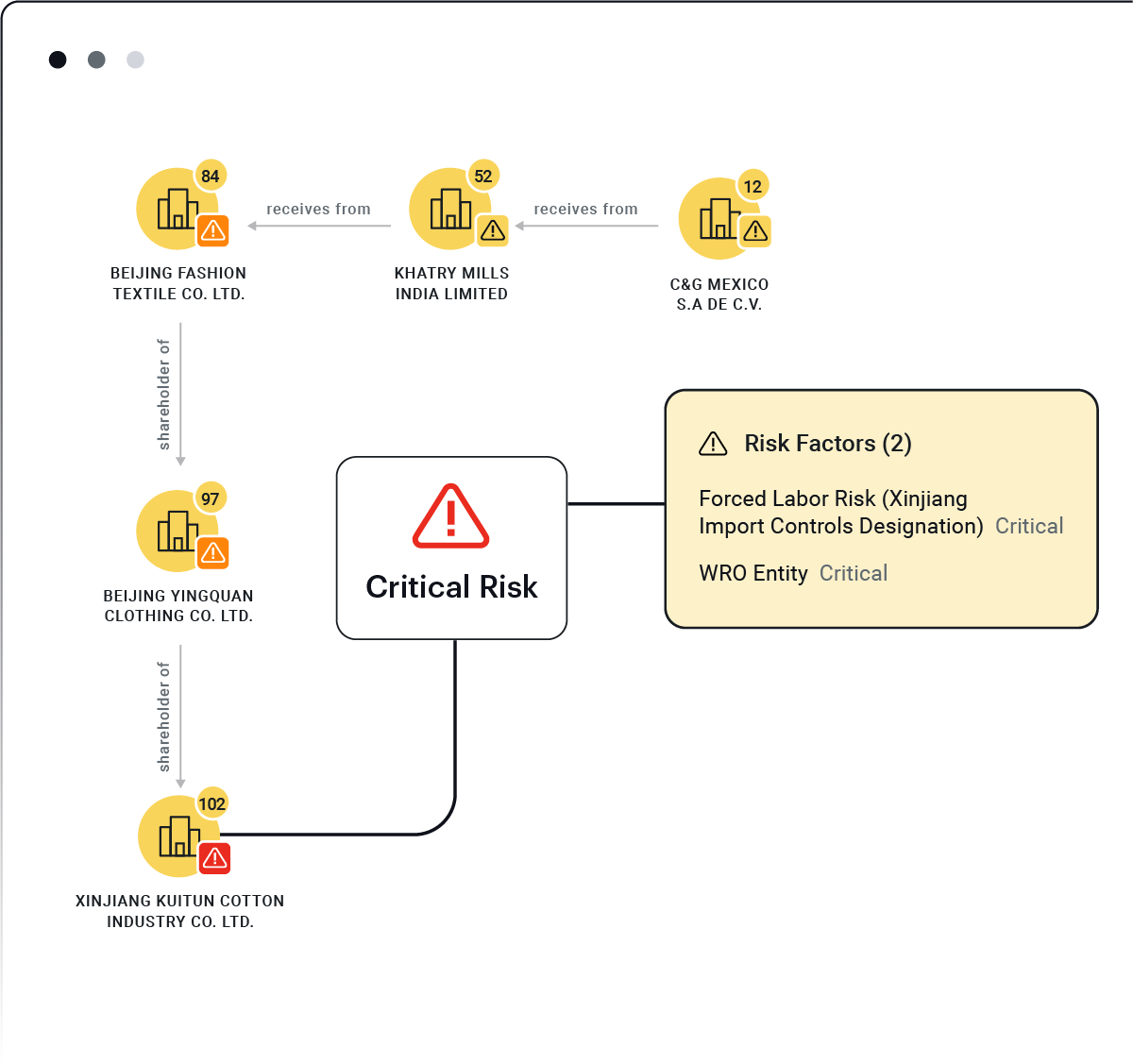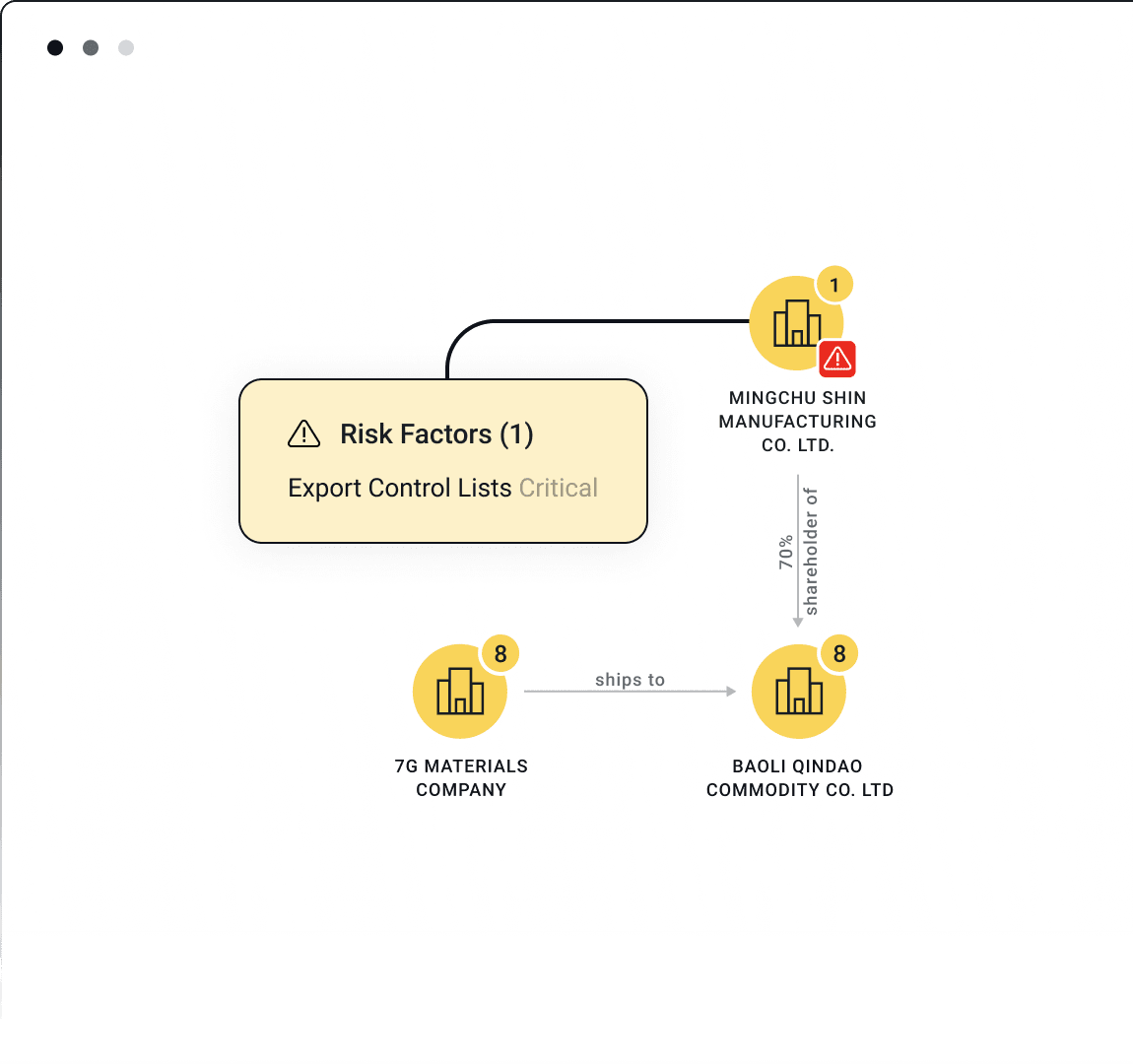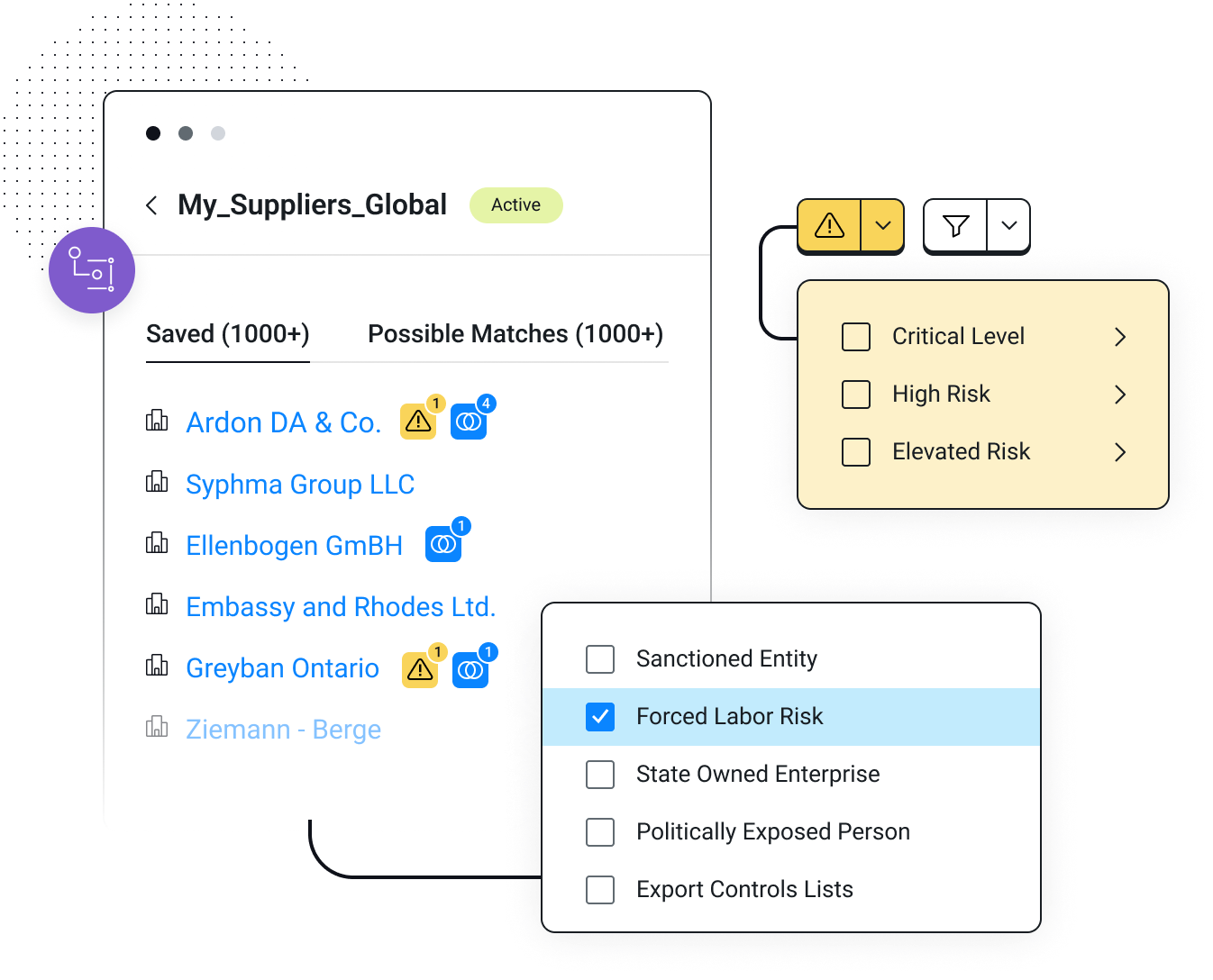Safeguard Your Cross-Border Commerce From Sanctions and Trade Risk
Features
Batch upload and screening
Upload vendor or supplier lists and screen them for core trade compliance risks within seconds
Risk identification and insight
Quickly uncover hidden trade and compliance risk with 50+ risk factors automatically computed across 250+ jurisdictions
Detailed company profiles
Speed up investigations with company profiles consolidated from 850+ global corporate and trade data sources
Visualization and discovery
Explore complex trade networks and tailor searches to your exact requirements
Import Compliance
Source goods from anywhere confidently with Sayari, trusted by industry and regulators including U.S. Customs and Border Protection.
- Uncover hidden risk with 32+ risk indicators targeting global watchlists and emerging forced labor risk typologies.
- Speed up investigations with entity profiles consolidated from 850+ global corporate and trade data sources.
- Upload and screen suppliers instantly. No more waiting weeks or months for insight. Your team is in the driver’s seat, powered by Sayari’s proprietary entity resolution model.
- Document your compliance efforts with one-click export of dashboards, visualizations, and source documents.

Export Controls
Navigate the complex export controls and sanctions compliance landscape with Sayari, trusted by industry and regulators including U.S. Bureau of Industry and Security.
- Access enriched sanctions and denied party screening lists (including BIS MEU, NS-CMIC, Section 1260H) with company details, corporate structures, trading partners, and more
- Uncover hidden risk with risk indicators targeting transshipment and other emerging red flags identified by BIS and international regulators
- Speed up investigations with entity profiles consolidated from 850+ global corporate and trade data sources
- Document your compliance efforts with one-click export of dashboards, visualizations, and source documents

Forced Labor Risk Screening
Move beyond list-based forced labor screening with Sayari, trusted by U.S. Customs and Border Protection to support import regulations including the Uyghur Forced Labor Prevention Act (UFLPA).
- Proactively identify forced labor risk with 32+ risk indicators that flag industry-standard screening lists, as well as emerging forced labor risk typologies targeted by international regulators.
- Screen for 1.6+ million companies geolocated in Xinjiang and their trading partners around the world
- Access analyst-curated risk insights from high-value sources such as the Sheffield-Hallam University reports on forced labor.
- Empower individual supplier review with entity profiles that detail corporate structures, trading partners, and risk indicators, all sourced to our global dataset

Sayari Also Supports
Improve Risk Assessments with Counterparty Transparency
Harness authoritative public records efficiently and effectively. Get a demo of Sayari to find out how your organization can conduct investigations that yield results.